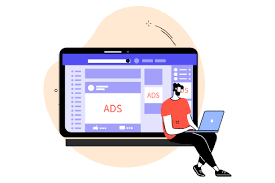In the ever-evolving world of digital marketing, Facebook Ads have become a powerful tool for businesses to reach their target audiences. However, achieving high conversion rates from these ads is not as simple as it might seem. It requires a strategic approach to optimize the entire ad funnel, from the initial click to the final conversion. In this blog, we’ll explore how a Facebook Ads marketing agency uses various techniques to optimize Facebook ad funnels, ensuring that every click has the best possible chance of converting into a customer.
Understanding the Facebook Ad Funnel
Before diving into optimization strategies, it’s essential to understand what a Facebook ad funnel is. An ad funnel is a series of steps that potential customers go through, starting from the moment they see an ad to the point where they make a purchase or complete a desired action. The typical stages of a Facebook ad funnel include:
1. Awareness: Introducing potential customers to your brand.
2. Consideration: Engaging users with more detailed information.
3. Conversion: Encouraging users to take a specific action, such as making a purchase or signing up for a newsletter.
The Role of a Facebook Ads Marketing Agency
A Facebook Ads marketing agency plays a crucial role in optimizing these funnels. These agencies offer digital marketing services that go beyond simply creating ads. They analyze data, perform A/B testing, and use advanced targeting techniques to ensure that each stage of the funnel is as effective as possible.
Stage 1: Awareness
The first stage of the funnel is all about getting your brand noticed. This involves creating ads that capture the attention of your target audience and make them aware of your products or services.
– Targeted Audience Segmentation
One of the primary strategies a Facebook Ads marketing agency employs is audience segmentation. By breaking down the target audience into specific segments based on demographics, interests, and behaviors, agencies can create tailored ads that resonate with different groups. This increases the likelihood of engagement and click-through rates.
– Compelling Creative Content
Creative content is king in the awareness stage. Agencies use eye-catching images, engaging videos, and compelling copy to capture the audience’s attention. The goal is to create a memorable first impression that encourages users to learn more about the brand.
Stage 2: Consideration
Once potential customers are aware of your brand, the next step is to nurture their interest and move them further down the funnel.
– Retargeting Campaigns
Retargeting is a powerful tool in the consideration stage. A Facebook Ads marketing agency uses retargeting campaigns to reach users who have previously interacted with the brand but haven’t yet converted. These campaigns remind users of their interest and encourage them to take the next step.
– Value-Driven Content
Agencies provide value-driven content that educates and informs potential customers about the benefits of the products or services. This can include blog posts, testimonials, case studies, and how-to videos. The aim is to build trust and position the brand as a solution to the user’s needs.
Stage 3: Conversion
The final stage of the funnel is where potential customers take the desired action, whether it’s making a purchase, signing up for a service, or filling out a contact form.
– Clear Call-to-Actions (CTAs)
A strong call-to-action is essential for driving conversions. Agencies ensure that CTAs are clear, compelling, and strategically placed within the ads. Whether it’s “Shop Now,” “Sign Up Today,” or “Learn More,” the CTA should guide users toward taking the next step.
– Landing Page Optimization
The landing page is where conversions happen. A Facebook Ads marketing agency optimizes landing pages to ensure they are aligned with the ad content and provide a seamless user experience. This includes fast loading times, mobile responsiveness, and a straightforward design that makes it easy for users to complete the desired action.
– A/B Testing
To maximize conversion rates, agencies perform A/B testing on different elements of the ad funnel. This involves testing variations of ads, CTAs, landing pages, and more to determine what works best. By continually refining these elements, agencies can significantly improve the overall performance of the ad funnel.
Measuring Success and Making Adjustments
Optimization is an ongoing process. A Facebook Ads marketing agency continuously monitors the performance of ad funnels using various metrics such as click-through rates, conversion rates, and return on ad spend (ROAS). Based on these insights, they make data-driven adjustments to improve the effectiveness of the campaigns.
– Analytics and Reporting
Agencies provide detailed analytics and reports to track the success of ad campaigns. This includes information on which ads are performing well, which audience segments are most responsive, and where there is room for improvement. These reports are crucial for making informed decisions and optimizing future campaigns.
– Staying Up-to-Date with Trends
The digital marketing landscape is constantly changing. A Facebook Ads marketing agency stays up-to-date with the latest trends, algorithm changes, and best practices to ensure that their strategies remain effective. This proactive approach helps businesses stay ahead of the competition and achieve their marketing goals.
Conclusion
Optimizing a Facebook ad funnel from clicks to conversions requires a strategic and data-driven approach. A Facebook Ads marketing agency brings expertise and advanced digital marketing services to the table, ensuring that each stage of the funnel is optimized for maximum performance. By focusing on targeted audience segmentation, compelling creative content, retargeting campaigns, clear CTAs, landing page optimization, and continuous testing and adjustments, these agencies help businesses turn clicks into valuable conversions. In the fast-paced world of digital marketing, partnering with a professional agency can make all the difference in achieving and exceeding your marketing objectives.

